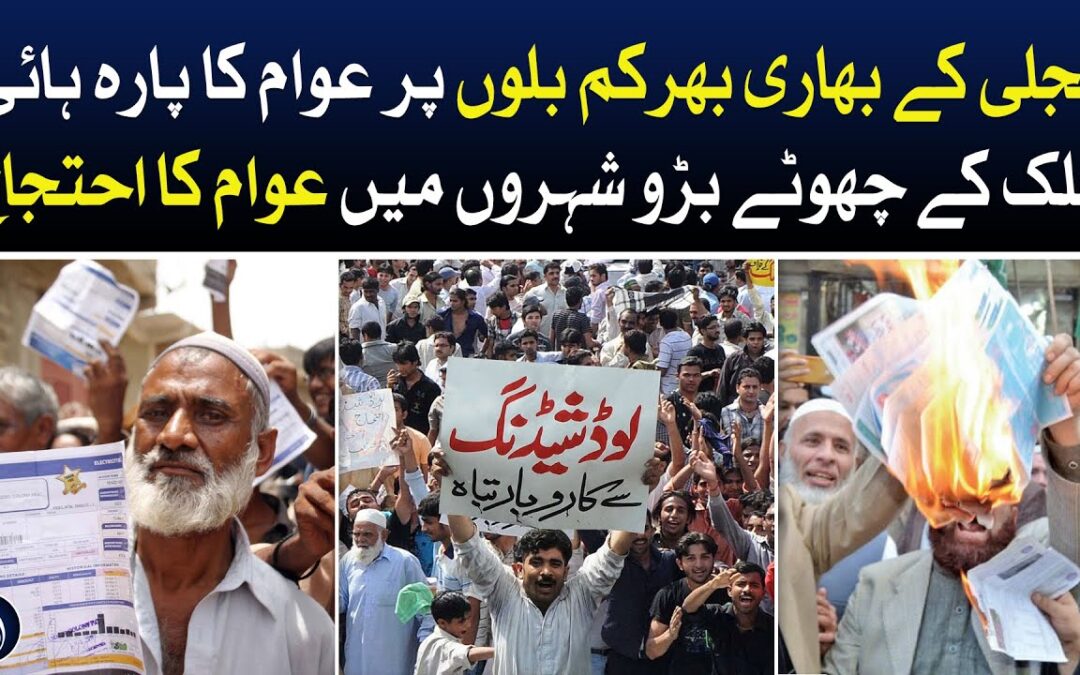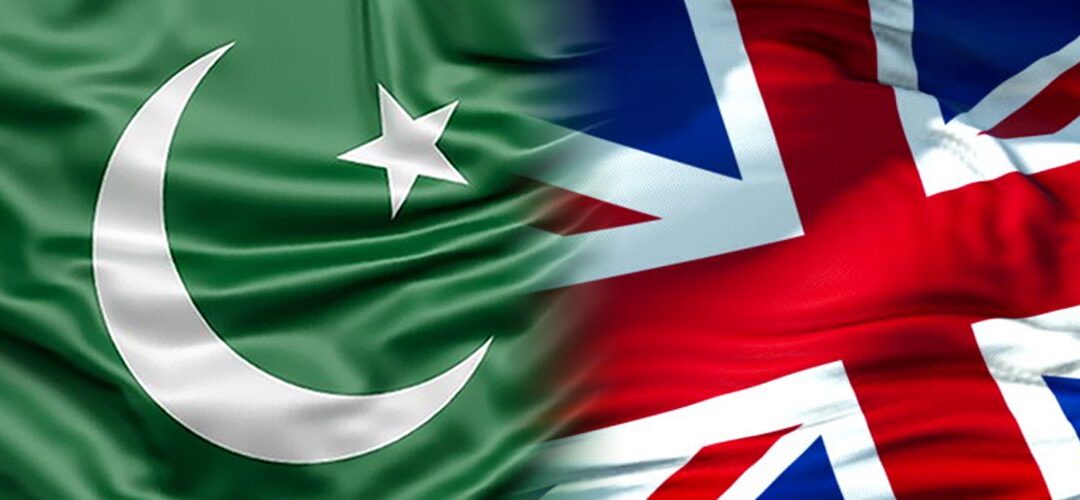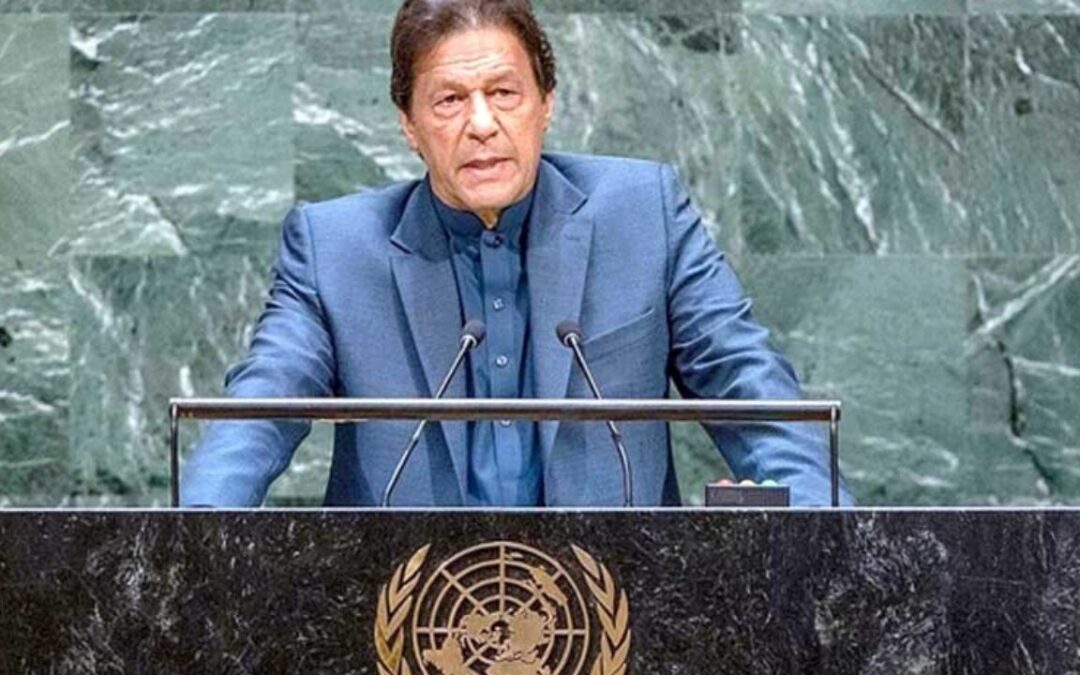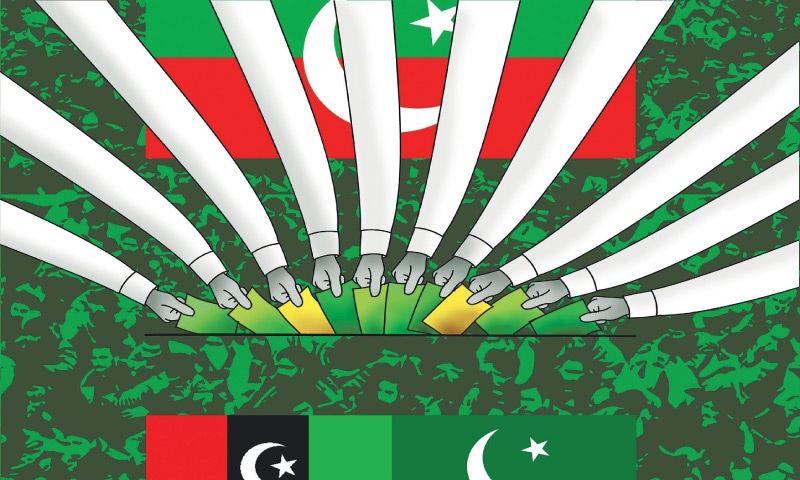
by admin | Aug 27, 2023 | The energy crisis in Pakistan causes effects and solutions
PM’s emergency meeting on inflated power bills bears no fruit
Overseer Head of the state Anwar-ul-Haq Kakar required a crisis meeting at the Top state leader’s Home today (Sunday) to talk about the issue of rising power bills. As indicated by PM’s post on microblogging stage X — officially known as Twitter — the gathering would incorporate briefings from the Service of Energy (Power Division) and conveyance organizations. Discussions would likewise be held to give the greatest help to buyers in regards to power charges, as per PM Kakar. The expanded power bills set off far-reaching fights, remembering Karachi, Rawalpindi, Multan, Gujranwala, and Peshawar. In Karachi, the Jamaat-e-Islami (JI held showings at various spots against the soaring expansion in power bills and what it expressed as cheating on a piece of the K-Electric (KE). In the meantime, in Rawalpindi, dissenters accumulated at Council Chowk and consumed bills while requesting that the public authority annul force charges on power. In Peshawar, nonconformists called the expansion in power bills horrendous and requested help from the public authority. In Gujranwala, Dissidents encompassed the Gujranwala Electric Power Organization office in challenging costly power. Fights were additionally held in different urban communities, including Narowal, Attock, Sargodha, and Haripur, against high power bills. In July, the then government bureau gave its thumbs up to a huge expansion in the base tax of power by up to Rs7.50 per unit against the public typical levy assurance of Rs4.96 by the power controller Public Electric Power Administrative Power (Nepra). The controller had climbed the duty to increment income assortment for the misfortune-making influence conveyance organizations (Discos) during the ongoing financial year. As indicated by a Nepra explanation, the overhauled public typical tax for the 2023-24 financial year is not set in stone at Rs29.78 per unit kWh, which is Rs.4.96 per unit higher than the recently resolved public typical levy of Rs24.82. While the controller referred to the rupee’s cheapening, high expansion and loan fees, the expansion of new limits and generally speaking low deals development as purposes for the increment, it was really climbed to meet one of the circumstances set by the Worldwide Money related Asset (IMF) of presenting underlying changes in the energy area. Notwithstanding, the appropriate tax would be a lot higher subsequent to including overcharges, expenses, obligations, and duties, other than month-to-month and quarterly changes.
Protest against electricity bills in all over Pakistan,
PESHAWAR/RAHIM YAR KHAN/HAFIZABAD/LAHORE: As fights strengthen the nation over against swelled power bills and runaway expansion for the third successive day, Guardian Head of the state Anwar-ul-Haq Kakar held a crisis meeting at his office today (Sunday) to reflect on help measures for the general population.
Attributable to fights in Peshawar, where unsettled residents have rampaged, the Peshawar Electric Stockpile Organization (PESCO) has looked for police security in the midst of fears of brutality.
The overwhelming expansion has previously left residents fearful, however, the expansion in power tax with bills and charges going through the rooftop has constrained them to organize fight exhibits, requesting a decrease in the power bills and withdrawal of overabundance charges.
The Service of Energy (Power Division) authorities advised the chief on the power levies and factors behind the enormous expansion in power bills.
In its letter to the Capital City Police Boss Syed Ashfaq Anwar, Pesco has mentioned the organization of police faculty in seven sub-divisions including Khyber Circle, Hayatabad 2, Tajabad, Landi Arbab, Badaber and Deh Bahadur.
Upset residents, as referenced in the letter, may enter these sub-divisions and vandalize the public property. It expressed that in the ongoing circumstance, the rule of law could be undermined.
“Pesco workers are in a condition of frenzy,” it added, looking for security for representatives and property.
In the meantime, residents organized a dissent exhibit in Punjab’s Rahim Yar Khan, hindering the primary street while in the region’s Chunian city, furious power buyers impeded Trade Street and set their bills on fire.
Protestors in the nation requested a decrease in power duties and the evacuation of overabundance charges in the service bills, cautioning that they wouldn’t take care of the bills in the event that the requests were not met.
Dealers, as well, fought in Hafizabad by driving a meeting from the city’s Fawara Chowk to the press club. In Okara’s Hujra Shah Muqeem, individuals emerged for showings also. Dissenters consumed power links and raised trademarks against the Water and Power Improvement Authority (Wapda) and the public authority.
Exhibitions by residents and merchants were likewise held in Faisalabad, Lahore, Risalpur, and Khyber Pakhtunkhwa’s Nowshehra area against the climb.
Ideological groups including the Jamaat-e-Islami and Muttahida Qaumi Development Pakistan (MQM-P) have censured the climb and extra charges on power bills.
MQM-P fears viciousness in the midst of fights
MQM-P Convener Khalid Maqbool Siddiqui, in a presser recently, communicated fears that the fights could transform into riots.
“It is the obligation of the public authority to go to prompt alleviation lengths,” he expressed, talking about the issues of force purchasers in Karachi and Hyderabad.
“The strain of round obligation isn’t on the proprietors of K-Electric, but on the buyers. Around 12 to 14 hours of load shedding is being finished in Hyderabad and the city’s brokers are being compelled to dissent,” he added.
The legislator said bills are something very similar, in spite of relentless and extended periods of time of load-shedding.
In July this year, the government bureau — headed by then top state leader Shehbaz Sharif — had greenlit a huge expansion in the base levy of power by up to Rs7.50 per unit against the public typical duty assurance of Rs4.96 by the power controller Public Electric Power Administrative Power (Nepra).
The controller had climbed the levy to increment income assortment for the misfortune-making influence dissemination organizations (Discos) during the ongoing monetary year. Nepra expressed that the updated public normal levy for the 2023-24 monetary year is not entirely set in stone at Rs29.78 per unit kWh, which is Rs.4.96 per unit higher than the recently resolved public typical duty of Rs24.82.
While the controller referred to the rupee’s downgrading, high expansion and loan costs, the expansion of new limits, and in general low deals development as purposes for the increment, it was really climbed to meet one of the circumstances set by the Worldwide Financial Asset (IMF) of presenting primary changes in the energy area.
Notwithstanding, the material duty would be a lot higher subsequent to including overcharges, charges, obligations, and tolls, other than month-to-month and quarterly changes.

by admin | Aug 27, 2023 | Pakistan, Pakistan–United Kingdom relations
Pakistan–United Kingdom relations
- Colonial Legacy: The history of Pakistan-UK relations can be traced back to the colonial era when the Indian subcontinent was under British rule. Following India’s partition in 1947, Pakistan emerged as an independent nation, and the UK played a role in recognizing Pakistan’s sovereignty.
- Diplomatic Relations: Pakistan and the UK established diplomatic relations soon after Pakistan’s creation in 1947. Both countries maintain embassies in each other’s capitals, Islamabad and London, respectively.
- Political Ties: The political relationship between Pakistan and the UK has had its ups and downs. Over the years, the two nations have engaged in dialogue on regional and international issues, including counterterrorism, trade, and development.
- Trade and Investment: The UK has been one of Pakistan’s important trading partners. Trade relations include commodities like textiles, machinery, and agricultural products. The UK is also home to a significant Pakistani diaspora, which has contributed to cultural exchange and remittances to Pakistan.
- Security and Counterterrorism: Both countries have cooperated on counterterrorism efforts, given their shared interests in combating global terrorism and extremism. Intelligence sharing and collaboration on security matters have been part of this cooperation.
- Education and Cultural Ties: The UK has been a popular destination for Pakistani students seeking higher education. Pakistani culture has also found a place in the UK through the Pakistani diaspora, contributing to a diverse and multicultural society in Britain.
- Aid and Development: The UK has provided development assistance to Pakistan over the years, focusing on areas such as education, healthcare, governance, and poverty alleviation. These efforts are aimed at promoting stability and development in Pakistan.
- Challenges: Like any relationship, Pakistan-UK relations have faced challenges as well. These challenges include addressing issues related to human rights, governance, and political stability. Controversial topics such as the Kashmir conflict have also occasionally strained the relationship.
- Bilateral Agreements: The two countries have signed various bilateral agreements to enhance cooperation in areas like trade, investment, education, and defense.
It’s important to note that the dynamics of international relations can change rapidly due to various factors such as geopolitical shifts, changes in leadership, and evolving global events. Therefore, for the most up-to-date information on Pakistan-UK relations, I recommend consulting official government sources, news outlets, and expert analyses.
Diplomatic relations Pakistan–United Kingdom
- Embassies: Both Pakistan and the United Kingdom have embassies in each other’s capitals. The Pakistani embassy is located in London, while the British High Commission is in Islamabad.
- High-Level Visits: Over the years, leaders from both countries have engaged in high-level visits to strengthen diplomatic ties. These visits often include discussions on various bilateral and international issues.
- Bilateral Agreements: Pakistan and the UK have signed several bilateral agreements covering areas such as trade, investment, education, defense, and culture. These agreements aim to promote cooperation and collaboration in various fields.
- Counterterrorism and Security Cooperation: Both countries have cooperated closely on counterterrorism efforts and security matters due to their shared interests in combating global terrorism and extremism. Intelligence sharing and joint efforts to address security challenges have been part of this cooperation.
- Trade and Economic Relations: Economic and trade relations play a significant role in their diplomatic interactions. The UK is one of Pakistan’s important trading partners, and discussions on trade policies, investment opportunities, and economic cooperation often take place during diplomatic engagements.
- Development Assistance: The UK has provided development assistance to Pakistan in various sectors, including education, healthcare, governance, and poverty alleviation. This assistance aims to support Pakistan’s development and stability.
- Cultural and Educational Exchanges: Cultural and educational ties are also an important aspect of their diplomatic relations. The UK has been a popular destination for Pakistani students pursuing higher education, and cultural exchanges contribute to mutual understanding between the two nations.
- Diaspora Engagement: The Pakistani diaspora in the UK is significant and plays a role in connecting the two countries. The diaspora’s contributions to both nations’ economies and cultures also impact diplomatic interactions.
Please note that diplomatic relations can evolve over time, and there may have been developments since my last update. For the latest and most accurate information on Pakistan-UK diplomatic relations, I recommend consulting official government sources, embassy websites, and reputable news outlets.
Trade and Investment Pakistan–United Kingdom
- Trade Relations: The United Kingdom is one of Pakistan’s major trading partners. Trade between the two countries involves a range of goods, including textiles, machinery, electronics, agricultural products, and more.
- Exports and Imports: Pakistan exports various products to the UK, with textiles and clothing being a significant portion of its exports. On the other hand, the UK exports machinery, chemicals, pharmaceuticals, and other products to Pakistan.
- Trade Volume: The trade volume between Pakistan and the UK has fluctuated over the years due to various economic factors and global events. Trade statistics can vary from year to year.
- Investment: The UK has made investments in various sectors of Pakistan’s economy, including energy, telecommunications, financial services, and retail. These investments contribute to economic development and job creation in Pakistan.
- Diaspora Remittances: The large Pakistani diaspora in the UK plays a significant role in terms of remittances sent back to Pakistan. These remittances contribute to Pakistan’s foreign exchange reserves and support families back home.
- Trade Agreements: Pakistan and the UK have engaged in discussions about trade agreements to facilitate and enhance bilateral trade. The nature and terms of these agreements can impact trade relations between the two countries.
- Investment Climate: The UK’s investment in Pakistan is influenced by factors such as the ease of doing business, regulatory environment, and political stability. An improved investment climate can attract more foreign direct investment (FDI) from the UK.
- Bilateral Investment Treaties: Both countries have worked on bilateral investment treaties to provide protection to investments made by each other’s nationals. These treaties offer legal safeguards for investors.
- Business and Economic Forums: Business and economic forums, as well as trade delegations, have been organized to promote trade and investment between the two countries. These events provide a platform for businesses to explore opportunities.
It’s important to note that economic relations can be affected by various factors, including economic policies, global economic trends, political developments, and trade agreements. Since my information is current as of September 2021, I recommend checking with official sources, economic reports, and news updates for the most recent data and developments regarding trade and investment between Pakistan and the United Kingdom.

by admin | Aug 26, 2023 | Imran Khan, Pakistan
Imran Khan, full name Imran Ahmed Khan Niazi, is a prominent Pakistani politician, former international cricketer, and philanthropist. He was born on October 5, 1952, in Lahore, Pakistan. Imran Khan has played significant roles in both the world of sports and politics. Here’s an overview of his career and contributions:
1. Cricket Career:
Imran Khan is renowned for his achievements as a cricketer. He was a highly successful all-rounder, known for his fast bowling and batting prowess. Some highlights of his cricket career include:
- Captaincy of the Pakistan national cricket team: Imran Khan led Pakistan to their first-ever Cricket World Cup victory in 1992.
- All-rounder Achievements: He is one of the most successful all-rounders in cricket history, having scored over 3,800 runs and taken more than 380 wickets in Test matches.
- Retirement: Imran Khan retired from international cricket after the 1992 World Cup victory, marking the end of his cricketing career.
2. Political Career:
After retiring from cricket, Imran Khan transitioned into politics and established the Pakistan Tehreek-e-Insaf (PTI) political party in 1996. His political journey includes:
- Political Activism: Imran Khan began advocating for social justice, anti-corruption measures, and reform in Pakistan’s political system.
- PTI’s Growth: PTI gradually gained popularity as a political alternative, focusing on issues such as good governance, economic reform, and social justice.
- 2018 General Elections: In the general elections held in 2018, PTI emerged as the largest party in the National Assembly, and Imran Khan was elected as the 22nd Prime Minister of Pakistan.
- Prime Ministerial Tenure: As Prime Minister, Imran Khan has aimed to address various challenges, including economic stability, governance reform, and social welfare.
3. Philanthropy and Social Work:
Throughout his life, Imran Khan has been involved in various philanthropic activities. He established the Shaukat Khanum Memorial Cancer Hospital & Research Centre (SKMCH&RC) in Lahore, Pakistan, which provides cancer treatment to patients regardless of their ability to pay. He also founded Namal University in Mianwali, which focuses on providing quality education to underserved regions.
Imran Khan’s legacy is marked by his achievements in cricket, his dedication to social causes, and his role as a political leader. His journey from a cricket legend to a prominent political figure has left a lasting impact on Pakistan’s history and society.

by admin | Aug 26, 2023 | Mobile Companies are in Pakistan and India, Pakistan, Uncategorized
How many Mobile Companies are in Pakistan and India and their users?
Pakistan and India have a competitive mobile market with several companies offering mobile services.
In Pakistan, there are major mobile service providers like:
- Jazz (Mobilink): One of the leading mobile operators in Pakistan.
- Telenor: Another prominent operator with a significant user base.
- Zong: Operated by China Mobile Pakistan, it has gained popularity in recent years.
- Ufone: A subsidiary of Pakistan Telecommunication Company Limited (PTCL).
- SCO (Special Communications Organization): Operates in specific regions, mainly serving Azad Jammu and Kashmir and Gilgit-Baltistan.
In India, the mobile market is extensive, and major players include:
- Jio (Reliance Jio): Known for its disruptive pricing strategies and rapid growth.
- Airtel (Bharti Airtel): One of the largest mobile operators in India.
- Vodafone Idea: Formed by the merger of Vodafone India and Idea Cellular.
Number of Mobile Users:
As of my last update, India had one of the largest mobile user bases in the world, with hundreds of millions of subscribers. Pakistan also had a significant number of mobile users, although the number was smaller compared to India.
Mobile Spending:
The daily mobile spending habits of users can vary widely based on factors such as income levels, usage patterns, and geographic locations. In both Pakistan and India, people spend money on various mobile-related services, including voice calls, text messages, data plans, mobile apps, and more. Daily spending on mobile phones can range from small recharges for basic services to larger expenditures for data plans and digital content.
It’s important to note that specific statistics about daily mobile spending might not be readily available and can vary greatly among individuals.
What is the use and uses of mobile phones?
Mobile phones, also known as cell phones or smartphones, have become an integral part of modern life and society. Their versatility and convenience have led to a wide range of uses that extend far beyond simple voice communication. Here are some of the primary uses and purposes of mobile phones:
- Communication: The primary function of mobile phones is communication. They allow users to make voice calls, send text messages (SMS), and use various messaging apps for instant messaging, video calls, and voice notes. Communication can take place locally and globally.
- Internet Access: Mobile phones provide access to the internet, enabling users to browse websites, search for information, read news, and connect with social media platforms. This feature has transformed the way people access and consume information.
- Social Networking: Mobile phones facilitate social interactions through various social media platforms like Facebook, Twitter, Instagram, and more. Users can share updates, photos, and videos, and engage with friends, family, and followers.
- Entertainment: Mobile phones offer a plethora of entertainment options. Users can watch videos, stream movies, and TV shows, listen to music, play games, and even read eBooks.
- Navigation and Maps: GPS-enabled smartphones provide navigation services, helping users find directions, locate places of interest, and plan routes for travel.
- Productivity: Mobile phones serve as productivity tools, with apps for email, calendars, note-taking, task management, and document editing. They enable users to stay organized and efficient on the go.
- E-Commerce: Mobile phones have transformed the way people shop. Users can browse online stores, compare prices, read reviews, and make purchases directly from their devices.
- Banking and Finance: Mobile banking apps allow users to check their account balances, transfer funds, pay bills, and even invest in financial products. Mobile wallets enable cashless transactions.
- Health and Fitness: Health-related apps can track physical activity, monitor heart rate, provide nutrition information, and even offer guided workouts. Users can also access medical information and telemedicine services.
- Photography and Video: Mobile phones have become primary devices for photography and videography. Advanced camera technologies allow users to capture high-quality photos and videos and instantly share them online.
- Education: Mobile phones provide access to educational resources, online courses, language learning apps, and educational games, making learning more accessible and flexible.
- Emergency Services: Mobile phones play a crucial role in emergencies. They allow users to call for help, contact emergency services, and share location information.
- Smart Home Integration: With the rise of smart home devices, mobile phones can control and monitor various aspects of the home, including lighting, security cameras, thermostats, and more.
- Business and Work: Mobile phones are essential for professionals on the go. They enable remote work, communication with colleagues and clients, access to business apps, and email management.
- Environmental Monitoring: Mobile phones can be used to collect and share data for various environmental monitoring purposes, such as weather forecasting, pollution tracking, and wildlife observation.
The uses of mobile phones continue to expand as technology evolves and new apps and functionalities are developed. They have become an indispensable tool that enhances various aspects of daily life and contributes to the interconnectedness of the modern world.

by admin | Aug 26, 2023 | Analyzing the Current Political Landscape in Pakistan, Pakistan
Analyzing the Current Political Landscape in Pakistan: Election Dynamics and the Role of the Caretaker Government
- Introduction
- The Evolving Political Scene in Pakistan
- Significance of Elections and Caretaker Governments
- Current Political Situation
- Major Political Parties and Their Positions
- Emerging Issues and Public Sentiments
- Upcoming Elections
- Scheduled Elections and Their Importance
- Preparations and Political Alliances
- Caretaker Government: Its Role and Formation
- Purpose of a Caretaker Government
- Process of Selecting Caretaker Officials
- Challenges and Controversies
- Ensuring Transparency and Fairness
- Addressing Allegations of Bias and Manipulation
- International Observers and External Influence
- Role of International Organizations in Elections
- Balancing Sovereignty and External Observations
- Public Expectations and Participation
- Civic Engagement and Voter Turnout
- Expectations from Elected Representatives
- Media’s Role and Election Coverage
- Media’s Influence on Public Perception
- Responsible Journalism during Election Period
- Caretaker Government’s Responsibilities
- Ensuring Neutral Administration
- Facilitating a Smooth Transition
- Future Implications and Prospects
- Impact of Election Outcomes on Policy Direction
- Upholding Democratic Values and Governance
- Conclusion
- Navigating Political Waters: Elections and the Caretaker Government
1. Introduction:
Pakistan’s political landscape is characterized by its complexity and continuous evolution. This report delves into the current political dynamics, the impending elections, and the role and significance of the caretaker government in the democratic process.
2. Current Political Situation:
An overview of the leading political parties, their stances on key issues, and the prevailing sentiments among the public sets the stage for understanding the broader political context.
3. Upcoming Elections:
Scheduled elections represent a crucial turning point for the nation. The report examines the preparations, political alliances, and the significance of these elections.
4. Caretaker Government: Its Role and Formation:
The purpose and role of the caretaker government in ensuring a level playing field for elections are discussed, along with insights into how caretaker officials are selected.
5. Challenges and Controversies:
Challenges related to transparency, fairness, and allegations of bias or manipulation are central to a meaningful electoral process and are explored within this context.
6. International Observers and External Influence:
The role of international organizations in observing elections and the delicate balance between maintaining national sovereignty and welcoming external observers are examined.
7. Public Expectations and Participation:
Voter engagement, turnout rates, and public expectations from elected representatives play a pivotal role in shaping election outcomes.
8. Media’s Role and Election Coverage:
The influence of media on public perception and responsible journalism practices during the election period are crucial for accurate information dissemination.
9. Caretaker Government’s Responsibilities:
Ensuring a neutral administration, facilitating a smooth transition of power, and maintaining an environment conducive to fair elections are key responsibilities of the caretaker government.
10. Future Implications and Prospects:
The report delves into the potential ramifications of election outcomes on policy direction and governance, emphasizing the importance of upholding democratic values.
11. Conclusion:
The interplay between elections and the caretaker government serves as a foundation for Pakistan’s democratic process. By navigating the complexities of the political landscape, the nation can continue on its path toward effective governance and political stability.





